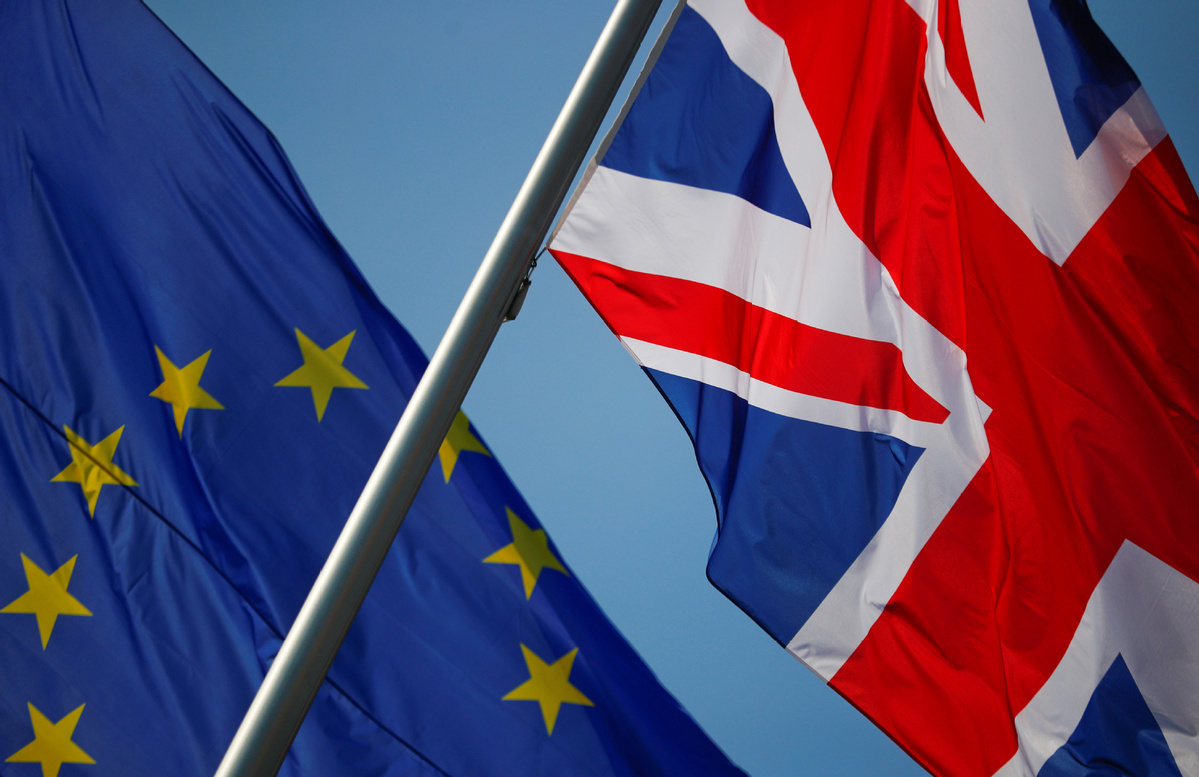Brexit stalemate adds to COVID-19 impact worries
By Bo Leung in London | China Daily Global | Updated: 2020-08-05 09:47

Trade negotiations between the United Kingdom and the European Union appear to be deadlocked following the UK's exit from the bloc.
Talks have not been going well, and they have been further complicated by COVID-19.
The UK left the European Union on Jan 31, but was granted a transition period until the end of the year. That means the country is still a member of the EU's single market and customs union.
Both sides are aiming to reach a deal ahead of that deadline to allow time for any trade agreement to be implemented. But experts say trade and the future UK-EU relationship are up in the air.
"At present, it remains extremely difficult to ascertain the likely outcome of talks," said Alex de Ruyter, director of Birmingham City University's Centre for Brexit Studies."Whilst both sides appear to be deadlocked, it is clear that there has been some movement toward a possible 'landing zone' for an agreement, but no deal remains a very real possibility.
"That being said, even with an agreement it is clear that there will be very substantial additional trade frictions come January."
De Ruyter believes that if the stalemate continues, and with an extension to the transition period ruled out by London, a failure to secure a trade deal would be "significant and negative for both sides".
"With both the UK and EU economies already battered by COVID-19 and subsequent shutdowns, any additional negative shock is likely to prove particularly problematic," he said.
"For the UK in particular, there are a great many areas where failing to reach any agreement would cause significant additional economic pain."
The negotiations cover several key manufacturing sectors, including automotive, aerospace, chemicals and pharmaceuticals, which de Ruyter said are heavily dependent on tariff-free access to the EU market, pan-European supply chains and pan-European safety certification.
There are also disagreements over other issues such as fisheries, fair competition provisions and financial services.
Thom Brooks, dean of Durham Law School and chair in law and government, said the two sides are far from reaching an agreement.
"The UK government has not been serious in its negotiations. Since the start, the government has been unprepared and uncompromising, thinking-wrongly-it held all the cards," Brooks said. "If an agreement can be found, this will limit the economic damage to all sides at a time of unprecedented pressure because of the current COVID-19 crisis."
While the EU has no obligation to help Britain leave, experts said it is in the interests of both parties to come to an agreement.
"Firstly, the UK remains a major market and a significant source of goods and services for EU members. Secondly, the EU has no interest in an acrimonious former member state continually causing issues," de Ruyter said.
The UK's economy is already taking a battering due to the coronavirus crisis, and if trade talks fail, it is feared that businesses will take an extra hit.
According to the Confederation of British Industry, of 752 companies surveyed between June 25 and July 15, one-third said they were very concerned about the prospect of exiting the EU without a trade agreement.
"The UK government has come under considerable pressure over its handling of the pandemic, with one of the highest death tolls in the world, severe shortages of PPE(personal protective equipment), late action to protect care homes and mixed-messaging, amongst other issues," de Ryuter said.
"This has raised basic questions of competence and, as a result, it seems unlikely that the government will welcome further scrutiny in the event of major border issues and the industrial difficulties that might accompany no deal."
According to Brooks, "Since Boris Johnson became (British) prime minister, they prefer to deal with the public as little as possible and the communication has been especially poor.
"They seem to think to 'get Brexit done' will score enough political points with the public that it will make up for a poorer economic system. I think they have got this wrong."
In addition, Brooks said, "The public were not only promised independence from the EU, but that they would be better off economically if money was kept in the UK rather than the EU.
"If further job losses and economic insecurity happen, I think this could be a game changer in moving public opinion the other way. But it all remains to be seen."
boleung@mail.chinadailyuk.com
























